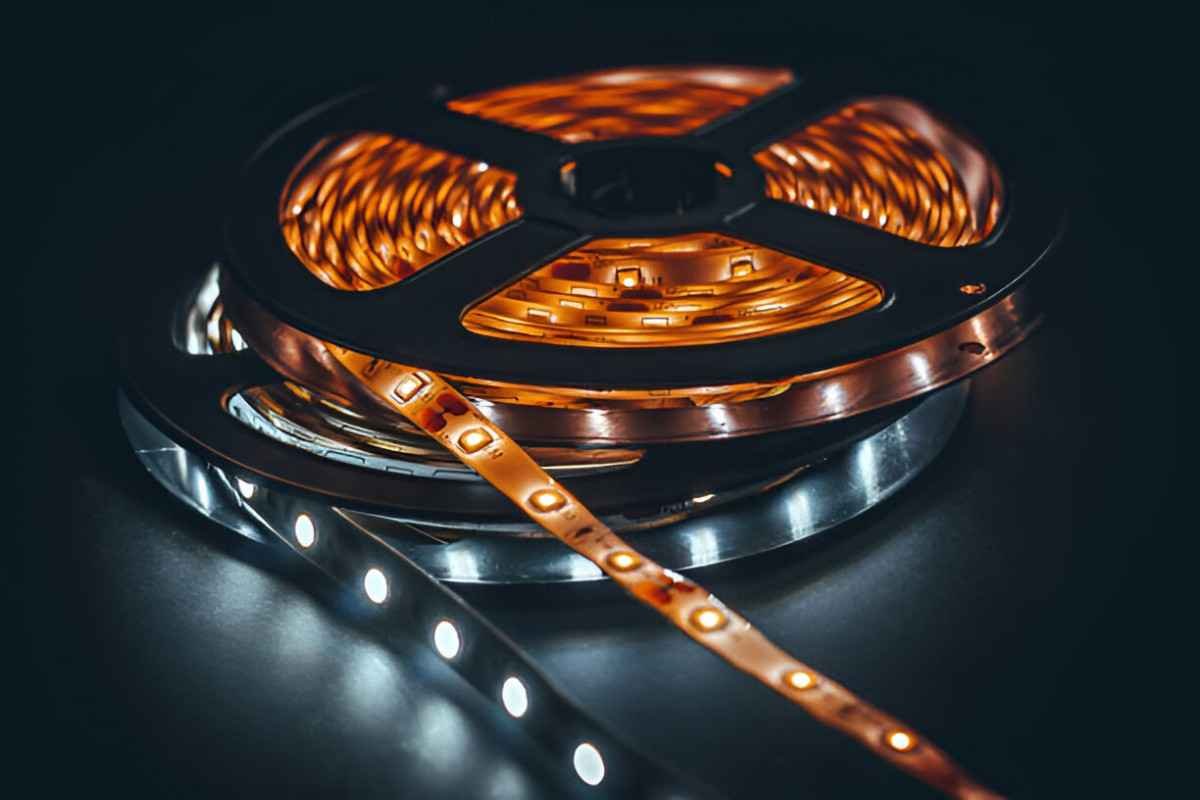In today’s world, lighting has evolved beyond its basic function of illuminating spaces. Smart LED strip lights provide an aesthetic upgrade while offering versatile functionality. If you’re considering adding these lights to your home or workspace, this guide will help you make an informed decision. I’ll walk you through the features, installation tips, compatibility, and other factors to consider. By the end, you’ll know exactly what to look for.
Table of Contents
Why Choose Smart LED Strip Lights?
Smart LED strip lights are a flexible, efficient way to add ambiance, improve visibility, and enhance your space. These lights:
- Allow custom colors and brightness settings.
- Sync with smart home systems like Alexa, Google Assistant, or Apple HomeKit.
- Offer energy efficiency compared to traditional lighting.
- Are easy to install and adjust for different spaces.
Whether you’re a tech enthusiast or just want to modernize your living room, these lights are an excellent choice.
Key Features to Look For
When shopping for smart LED strip lights, consider these essential features:
1. Brightness and Lumens
Brightness determines how well the strip lights illuminate your space. Measured in lumens, this metric helps compare the intensity of different products. A strip light with 1,500 lumens or more works well for task lighting, while 600–1,000 lumens are ideal for ambiance.
2. Color Options and Modes
The best smart LED strip lights allow a wide range of colors. Look for RGB (red, green, blue) options, or even RGBIC (independent color) strips that offer gradient effects. Consider whether the lights support warm-to-cool whites for more versatility.
3. Length and Customization
Smart LED strips come in various lengths, typically ranging from 6.5 feet to 33 feet. Ensure the product can be extended or cut to fit your space. Some strips offer connectors for corners or longer installations.
4. Smart Features and Compatibility
Check whether the lights are compatible with your existing smart home ecosystem. Features like app control, voice commands, and scheduling enhance usability.
5. Connectivity Options
Smart LED strip lights connect through Wi-Fi, Bluetooth, or Zigbee. Wi-Fi provides the most extensive range, while Bluetooth is better for localized control.
6. Adhesive Quality and Mounting
Strong adhesive backing ensures your lights stay in place. Some products also include mounting clips for additional security.
Comparison Table: Top Smart LED Strip Lights
Here’s a quick comparison of some of the most popular smart LED strip lights:
| Feature | Govee RGBIC Pro | Philips Hue Lightstrip Plus | Kasa Smart LED Strip | Nexillumi LED Strip |
|---|---|---|---|---|
| Brightness | 1,800 lumens | 1,600 lumens | 1,400 lumens | 1,200 lumens |
| Color Range | 16 million+ | 16 million+ | 16 million+ | RGB only |
| Smart Compatibility | Alexa, Google | Alexa, Google, Apple Home | Alexa, Google | App only |
| Connectivity | Wi-Fi, Bluetooth | Zigbee | Wi-Fi | Bluetooth |
| Length Options | 6.5ft to 32.8ft | 6.5ft to 16.4ft | 6.5ft to 33ft | 6.5ft to 20ft |
| Price Range | $50–$100 | $70–$120 | $40–$70 | $30–$50 |
How to Choose Based on Your Needs
Ambiance or Task Lighting?
If you’re lighting up a workspace or kitchen, prioritize brightness and accurate white tones. For ambiance, focus on color options and effects.
Room Size and Layout
Measure the area where you plan to install the strip lights. Choose a length that accommodates your space without unnecessary extensions or gaps.
Smart Ecosystem Integration
Ensure the product works seamlessly with your existing devices. For instance, if you use Alexa for home automation, pick a model compatible with Alexa.
Budget Considerations
Smart LED strip lights range from $30 to over $150. Higher-priced options typically offer advanced features like dynamic effects, higher brightness, or broader smart compatibility.
Installation Tips for Beginners
Installing smart LED strip lights is straightforward. Here’s a step-by-step guide:
- Plan the Layout: Sketch out the installation area to determine the required length.
- Prepare the Surface: Clean and dry the surface to ensure the adhesive sticks properly.
- Test the Lights: Connect the strip to the power supply and test before installing.
- Cut or Extend: Use scissors to cut the strip at marked points or connect additional sections.
- Attach the Strip: Peel off the adhesive backing and stick the strip along your planned path.
- Secure with Clips: For extra stability, use mounting clips or brackets.
- Connect to the App: Download the corresponding app and follow pairing instructions.
Common Issues and Troubleshooting
Adhesive Not Sticking
If the adhesive fails, use double-sided tape or mounting clips. Ensure the surface is clean and smooth.
Connectivity Problems
Restart your router or reset the lights. For Bluetooth models, ensure your device is within range.
Colors Not Displaying Properly
Check for loose connections or damaged LEDs. Reset the strip through the app to recalibrate colors.
Advanced Features Worth Considering
- Music Sync: Some smart LED strips can sync with music, creating dynamic lighting effects.
- Zoning: Advanced models allow independent control of different sections for varied lighting.
- Energy Monitoring: Track energy usage through compatible apps.
Frequently Asked Questions
Are Smart LED Strip Lights Energy Efficient?
Yes, they consume significantly less energy than traditional incandescent lights. Look for models with an energy-saving mode.
Can I Use Smart LED Strips Outdoors?
Many models are designed for indoor use only. If you need outdoor lighting, choose waterproof options with an IP65 rating or higher.
How Long Do They Last?
Most smart LED strips have a lifespan of 25,000 to 50,000 hours. Proper installation and usage can extend their life.
Final Thoughts
Choosing the best smart LED strip lights depends on your unique needs and setup. By considering brightness, compatibility, and other features, you can find a model that fits your space and lifestyle. With this guide, I hope you feel confident in making the right decision for your home or workspace. Smart lighting is more than just a trend; it’s a functional and stylish way to upgrade your environment.





